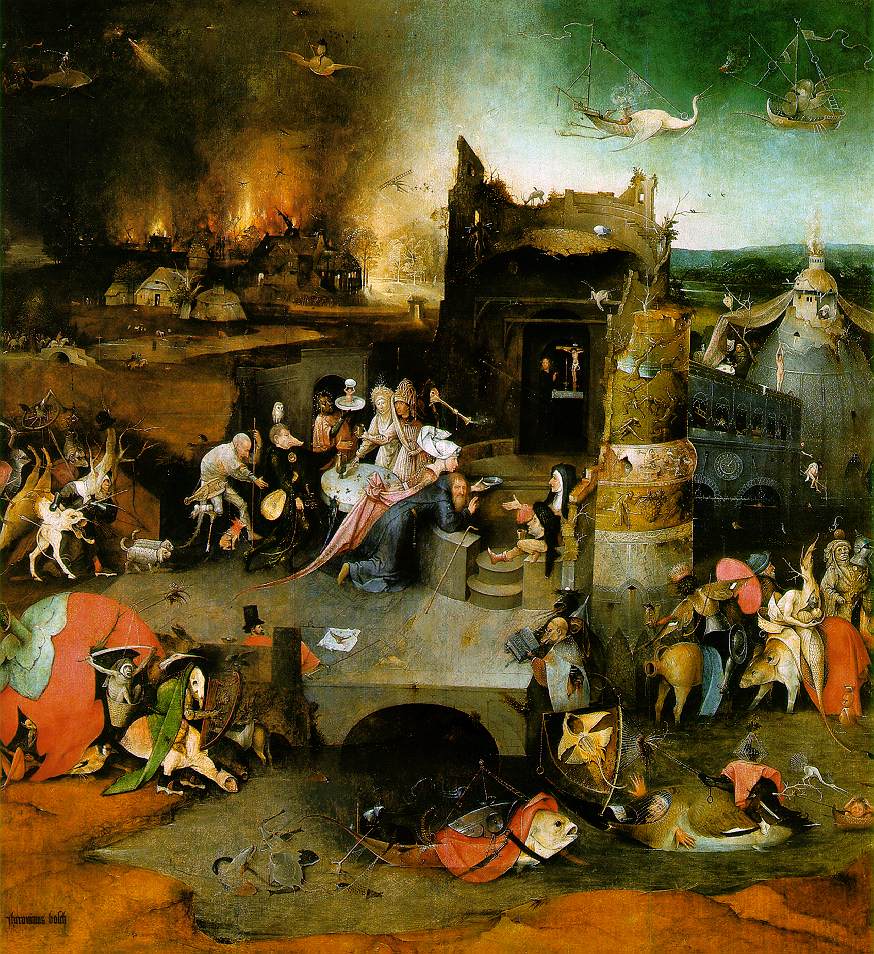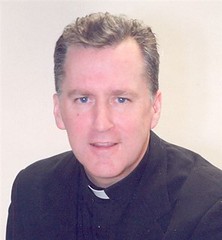
Matthew was one of twelve apostles, a Jew, writing to his fellow Jews to convince them that Jesus is the expected Messiah.
Matthew describes Jesus’ journey to Galilee and quotes the prophet Isaiah 8, 23-9,1. Matthew sees Jesus as the fulfillment of this prophecy as a light to the nations who dispels the darkness of ignorance and death and brings life truth and salvation. This passage is also used as one of the readings on Christmas when we celebrate the birth of God made man.During the time of Isaiah, the territory of Zebulun and Naphtali had been devastated by the Assyrians in the period 734-721 B.C.. A great number of the Jews were driven into exile in Assyria and foreigners were moved into the region to colonize it. From this time on it is referred to as the "Galilee of the Gentiles". This is the land that would be the first to receive the light of Christ’s preaching.
Jesus begins his public ministry with the words "Repent, for the Kingdom of heaven is at hand." Repentance is necessary to clear away the obstacles that prevent the light from reaching our souls.
Then he invites his disciples to proclaim the Kingdom of Heaven. He begins to lay the foundation of his Church which is called to be a sign of God’s Kingdom, a sign of the Light’s Presence by calling his first apostles.
Christ calls each of us to be his light in the world. Evangelization is the work of every member of the Church, not just the Pope, bishops and priests. We share the light of Christ by our fidelity to and witnessing to the truth of the teachings of Jesus and his Church. We share the light of Christ by through our kindness, perseverance in the midst of struggle, and forgiveness.
When he visited Denver in 1993, Pope John Paul II said that this marvelous world so loved by the Father “is the theater of a never ending battle being waged for our dignity and identity as free, spiritual beings.” He spoke of a ``culture of death'' that seeks to impose itself on our desire to live, and live to the full. There are those who reject the light of life, preferring ``the fruitless works of darkness'' (Eph 5:11). Their harvest is injustice, discrimination, exploitation, deceit, violence.” In every age, this results in the death of innocents. He cited examples in the twentieth century of “genocide, 'final solutions', 'ethnic cleansings' and the massive taking of lives of human beings event before they are born, or before they reach the natural point of death.
“The family especially is under attack. And the sacred character of human life denied. Naturally the weakest members of society are the most at risk: the unborn, children, the sick, the handicapped, the old, the poor and unemployed, the immigrant and refugee…”
He called on young people to put their energy and youthful ideals into spreading the Gospel of Life and warned of the devastating consequences for themselves and society if they failed by saying “Woe to you if you do not succeed in defending life.”
The Gospel is not meant to be hidden out of fear or indifference. It is not just a private affair between us and God. The Gospel is like a lamp placed on a stand so that people may see its light and give praise to our heavenly Father (cf. Mt 5:15-16). In his Gospel John writes "this life was the light of the human race; the light shines in the darkness, and the darkness has not overcome it'' (Jn 1:4-5).
The Lord can use us despite our weaknesses to be instruments of his light and salvation. We are frail and sinful human beings, but we can point to the Light beyond us, to the Light that is Jesus Christ.
Jesus calls today to be Light and to bring the Light into that darkness. Ultimately we will win since we believe that Life is more powerful than the forces of death; they know that the Truth is more powerful than darkness; that Love is stronger than death (cf. Song 6:8). The light of the culture of life will overcome the darkness of the culture of death.
The Book of Revelation describes Mary, as the Woman clothed with the sun (cf. Rev 12:1). That light is the light of Christ. With her Son she does battle against the Dragon, a symbol of Satan and the forces of the culture of death. This book speaks of the final victory of life over death. We call on our Blessed Mother today to help remove the obstacles that prevent us from experiencing the light in its’ fullness and announce to others by the way we live: "The Lord is my light and my salvation".
Matthew describes Jesus’ journey to Galilee and quotes the prophet Isaiah 8, 23-9,1. Matthew sees Jesus as the fulfillment of this prophecy as a light to the nations who dispels the darkness of ignorance and death and brings life truth and salvation. This passage is also used as one of the readings on Christmas when we celebrate the birth of God made man.During the time of Isaiah, the territory of Zebulun and Naphtali had been devastated by the Assyrians in the period 734-721 B.C.. A great number of the Jews were driven into exile in Assyria and foreigners were moved into the region to colonize it. From this time on it is referred to as the "Galilee of the Gentiles". This is the land that would be the first to receive the light of Christ’s preaching.
Jesus begins his public ministry with the words "Repent, for the Kingdom of heaven is at hand." Repentance is necessary to clear away the obstacles that prevent the light from reaching our souls.
Then he invites his disciples to proclaim the Kingdom of Heaven. He begins to lay the foundation of his Church which is called to be a sign of God’s Kingdom, a sign of the Light’s Presence by calling his first apostles.
Christ calls each of us to be his light in the world. Evangelization is the work of every member of the Church, not just the Pope, bishops and priests. We share the light of Christ by our fidelity to and witnessing to the truth of the teachings of Jesus and his Church. We share the light of Christ by through our kindness, perseverance in the midst of struggle, and forgiveness.
When he visited Denver in 1993, Pope John Paul II said that this marvelous world so loved by the Father “is the theater of a never ending battle being waged for our dignity and identity as free, spiritual beings.” He spoke of a ``culture of death'' that seeks to impose itself on our desire to live, and live to the full. There are those who reject the light of life, preferring ``the fruitless works of darkness'' (Eph 5:11). Their harvest is injustice, discrimination, exploitation, deceit, violence.” In every age, this results in the death of innocents. He cited examples in the twentieth century of “genocide, 'final solutions', 'ethnic cleansings' and the massive taking of lives of human beings event before they are born, or before they reach the natural point of death.
“The family especially is under attack. And the sacred character of human life denied. Naturally the weakest members of society are the most at risk: the unborn, children, the sick, the handicapped, the old, the poor and unemployed, the immigrant and refugee…”
He called on young people to put their energy and youthful ideals into spreading the Gospel of Life and warned of the devastating consequences for themselves and society if they failed by saying “Woe to you if you do not succeed in defending life.”
The Gospel is not meant to be hidden out of fear or indifference. It is not just a private affair between us and God. The Gospel is like a lamp placed on a stand so that people may see its light and give praise to our heavenly Father (cf. Mt 5:15-16). In his Gospel John writes "this life was the light of the human race; the light shines in the darkness, and the darkness has not overcome it'' (Jn 1:4-5).
The Lord can use us despite our weaknesses to be instruments of his light and salvation. We are frail and sinful human beings, but we can point to the Light beyond us, to the Light that is Jesus Christ.
Jesus calls today to be Light and to bring the Light into that darkness. Ultimately we will win since we believe that Life is more powerful than the forces of death; they know that the Truth is more powerful than darkness; that Love is stronger than death (cf. Song 6:8). The light of the culture of life will overcome the darkness of the culture of death.
The Book of Revelation describes Mary, as the Woman clothed with the sun (cf. Rev 12:1). That light is the light of Christ. With her Son she does battle against the Dragon, a symbol of Satan and the forces of the culture of death. This book speaks of the final victory of life over death. We call on our Blessed Mother today to help remove the obstacles that prevent us from experiencing the light in its’ fullness and announce to others by the way we live: "The Lord is my light and my salvation".





